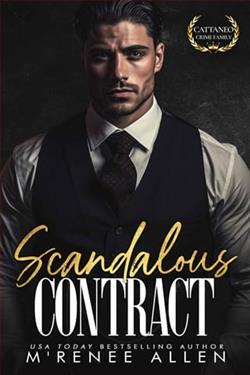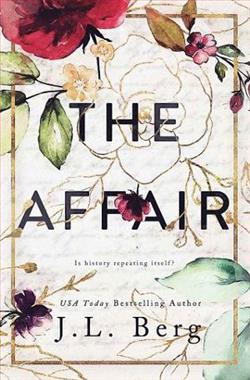Page 37 of The Odessa File
‘Please try,’ said Miller, and proffered his press card.
The receptionist looked at it and dialled a number on her house telephone. Miller was in luck. The press attaché was just about to leave. He evidently asked for a few minutes to get his hat and coat back off again. Miller was shown into a small waiting room adorned by several Rowland Hilder prints of the Cotswolds in Autumn. On a table lay several back copies of the Tatler and brochures depicting the onward march of British industry. Within seconds, however, he was summoned by one of the ex-
sergeants and led upstairs, along a corridor and shown into a small office.
The press attaché, he was glad to see, was in his mid-thirties and seemed eager to help.
‘What can I do for you?’ he asked. Miller decided to go straight into the matter.
‘I am investigating a story for a news magazine,’ he lied. ‘It’s about a former SS captain, one of the worst, a man still sought by our own authorities. I believe he was also on the wanted list of the British authorities when this part of Germany was under British administration. Can you tell me how I can check whether the British ever captured him, and if so what happened to him?’
The young diplomat was perplexed.
‘Good Lord, I’m sure I don’t know. I mean, we handed over all our records and files to your government in 1949. They took over where our chaps left off. I suppose they would have all these things now.’
Miller tried to avoid mentioning that the German authorities had all declined to help.
‘True,’ he said. ‘Very true. However all my inquiries so far indicate he has never been put on trial in the Federal Republic since 1949. That would indicate he had not been caught since 1949. However, the American Document Center in West Berlin reveals a copy of the man’s file was requested from them by the British in 1947. There must have been a reason for that, surely?’
‘Yes, one would indeed suppose so,’ said the attaché. He had evidently taken in the reference to Miller having procured the co-operation of the American authorities in West Berlin, and furrowed his brow in thought.
‘So who on the British side would be the investigating authority during the occupation … I mean, the administration period?’
‘Well, you see, it would have been the Provost Marshal’s office of the army at that time. Apart from Nuremberg, which were the major war-crimes trials, the separate Allies were investigating individually, although obviously we cooperated with each other. Except the Russians. These investigations led to some Zonal War Crimes Trials, do you follow me?’
‘Yes.’
‘The investigations were carried out by the Provost Marshal’s department, that’s the military police, you know, and the trials were prepared by the legal branch. But the files of both were handed over in 1949. Do you see?’
‘Well, yes,’ said Miller, ‘but surely copies must have been kept by the British?’
‘I suppose they were,’ said the diplomat. ‘But they’d be filed away in the archives of the Army by now.’
‘Would it be possible to look at them?’
The attaché appeared shocked.
‘Oh, I very much doubt it. I don’t think so. I suppose bona-fide research scholars might be able to make an application to see them, but it would take a long time. And I don’t think a reporter would be allowed to see them – no offence meant, you understand?’
‘I understand,’ said Miller.
‘The point is,’ resumed the diplomat earnestly, ‘that, well, you’re not exactly official, are you? And one doesn’t wish to upset the German authorities, does one?’
‘Perish the thought.’
The attaché rose.
‘I don’t think there’s really much the Embassy can do to help you.’
‘OK. One last thing. Was there anybody here then who is still here now?’
‘On the Embassy staff? Oh dear me no. No, they’ve all changed many times.’ He escorted Miller to the door. ‘Wait a minute, there’s Cadbury. I think he was here then. He’s been here for ages, I do know that.’
‘Cadbury?’ said Miller.
‘Anthony Cadbury. The foreign correspondent. He’s the sort of senior British press chap here. Married a German girl. I think he was here after the war, just after. You might ask him.’
‘Fine,’ said Miller. ‘I’ll try him. Where do I find him?’















